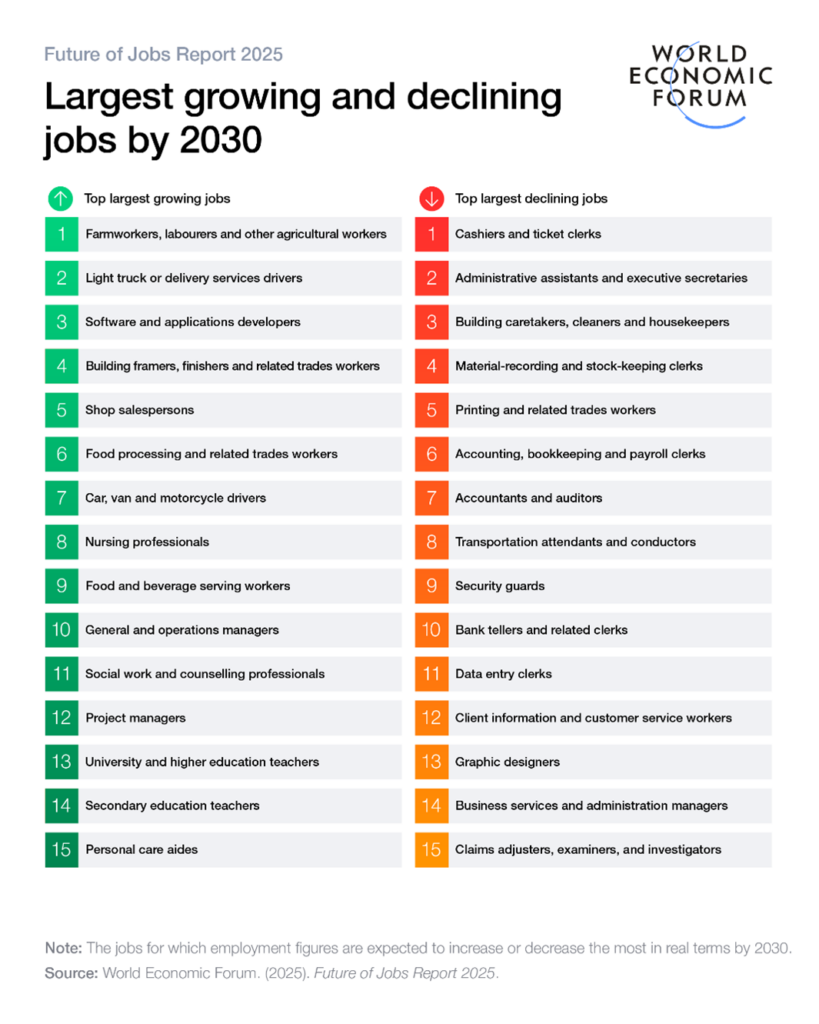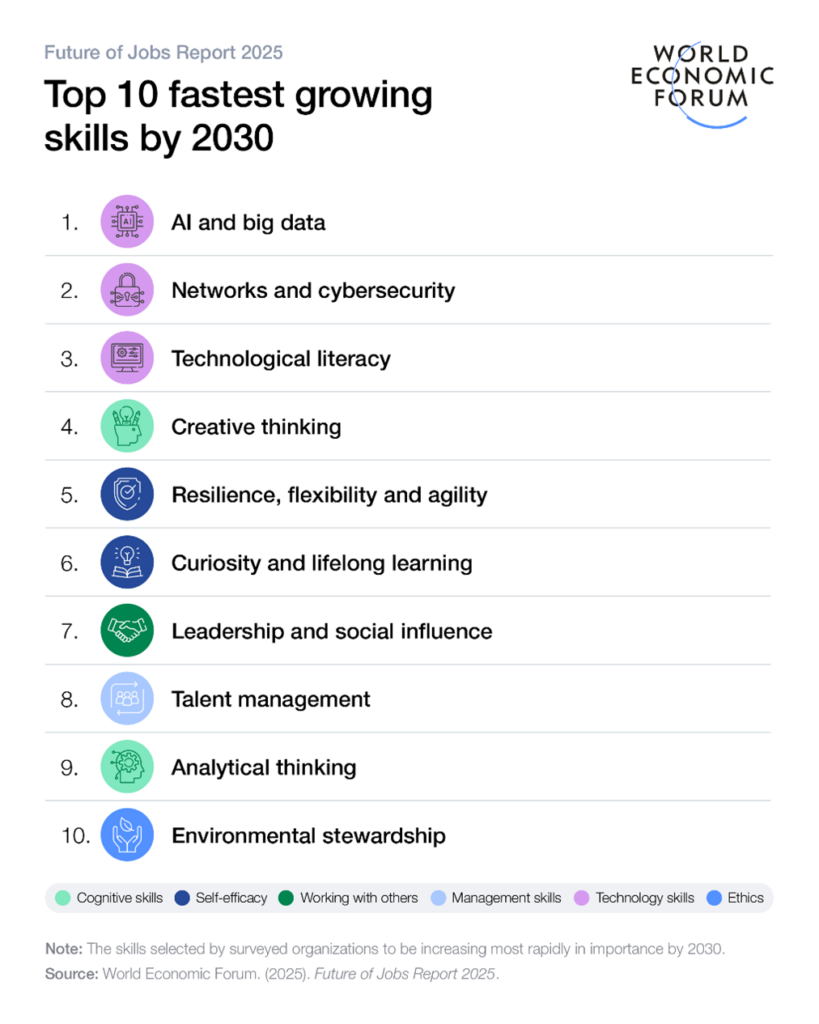The World Economic Forum’s (WEF) Future of Jobs Report 2025 released this week, reveals how the global job market is set to transform by 2030.
With 170 million new roles expected to emerge and 92 million jobs displaced, the net gain of 78 million jobs highlights a significant shift in the employment landscape. The report attributes these changes to technological advancements, demographic shifts, geoeconomic tensions and economic pressures – factors poised to reshape industries and professions worldwide.
KEY TRENDS RESHAPING THE JOB MARKET
Drawing on insights from over 1,000 companies, the report identifies four major drivers of disruption:
- Technological Advancements: From AI to renewable energy technologies, innovation is a double-edged sword, creating demand for some roles while rendering others obsolete.
- Demographic Shifts: Ageing populations in high-income countries are driving up demand for healthcare and education professionals, while growth in working-age populations in lower-income regions is reshaping global talent pools.
- Geoeconomic Tensions: Trade restrictions, geopolitical instability and industrial policy shifts are spurring changes in workforce strategies, including offshoring and reshoring.
- Economic Pressures: Rising costs of living and inflation are compelling businesses to adapt their models, leading to both job creation and displacement.
FRONTLINE ROLES & EMERGING OPPORTUNITIES
The report highlights significant job growth in frontline sectors such as agriculture, construction and delivery services. Essential sectors like healthcare and education are also poised for expansion, driven by demographic trends. For example, nursing professionals and secondary school teachers are among the roles projected to see substantial increases by 2030, as shown in the chart below.
Simultaneously, advances in AI, robotics, and renewable energy are reshaping demand for specialized roles. Environmental engineers, renewable energy technicians, and AI specialists are among the jobs on the rise, while traditional roles like graphic designers and cashiers face steep declines due to automation and generative AI, as shown in the chart below.

PERSISTENT SKILLS GAP
Despite these opportunities, the skills gap remains a critical barrier to business transformation. The report reveals that nearly 40% of job skills will change by 2030, with 63% of employers citing the skills gap as their primary challenge. If the global workforce were represented by 100 people, 59 would require reskilling or upskilling by 2030, yet 11 of these individuals are unlikely to receive the necessary training.
While technology skills such as AI, big data, and cybersecurity are in high demand, human-centric skills like resilience, flexibility and creative thinking remain essential, as shown in the chart below. The ability to combine technical expertise with these human skills will define success in the evolving job market.

AI & WORKFORCE TRANSFORMATION
Artificial intelligence is a cornerstone of the transformation, with half of global employers planning to realign their business models to harness its potential. Upskilling is the most common response, with 77% of employers committed to preparing their workforce for AI-driven changes. However, 41% plan workforce reductions as automation takes over routine tasks.
Employers are also looking to redeploy workers impacted by AI disruption into other roles within their organisations. This approach not only addresses the skills gap but also minimizes the human cost of technological transformation.
ECONOMIC, DEMOGRAPHIC & GEOECONOMIC FACTORS
The rising cost of living and slower economic growth are anticipated to displace six million jobs globally by 2030. Simultaneously, ageing populations in high-income regions are increasing demand for healthcare roles, while expanding working-age populations in lower-income countries are fueling growth in education professions.
Geopolitical tensions are another critical factor, with 34% of businesses citing them as a concern. Trade restrictions and industrial policy shifts are prompting companies to reassess their workforce strategies, including offshoring and reshoring. These trends are also boosting demand for cybersecurity skills.
BUILDING A RESILIENT WORKFORCE
“Trends such as generative AI and rapid technological shifts are upending industries and labour markets, creating both unprecedented opportunities and profound risks,” said Till Leopold, WEF’s Head of Work, Wages and Job Creation. “The time is now for businesses and governments to work together, invest in skills, and build an equitable and resilient global workforce.”
The report emphasises the urgent need for coordinated action across governments, businesses, and educational institutions. Priorities include bridging the skills gap, investing in reskilling initiatives, and creating accessible pathways into high-demand roles. By focusing on equitable workforce strategies, stakeholders can ensure that workers are prepared to thrive in the jobs of tomorrow.
FUTURE OF JOBS
The Future of Jobs Report 2025 paints a compelling picture of a rapidly evolving job market. While challenges abound, the opportunities for growth and innovation are equally significant. By addressing the skills gap and fostering collaboration between public and private sectors, the global workforce can be equipped to navigate and thrive in this transformative era. Download the full report here.








































